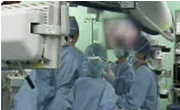Purpose: The aim of this study was to develop and test an explanatory model for sleep disorders in people with cancer. A hypothetical model was constructed on the basis of a review of previous studies, literature, and sleep models, and 10 latent varia...
http://chineseinput.net/에서 pinyin(병음)방식으로 중국어를 변환할 수 있습니다.
변환된 중국어를 복사하여 사용하시면 됩니다.
- 中文 을 입력하시려면 zhongwen을 입력하시고 space를누르시면됩니다.
- 北京 을 입력하시려면 beijing을 입력하시고 space를 누르시면 됩니다.
https://www.riss.kr/link?id=A104580297
- 저자
- 발행기관
- 학술지명
- 권호사항
-
발행연도
2011
-
작성언어
Korean
-
주제어
Neoplasms ; Sleep disorders ; 암 ; 수면장애
-
등재정보
KCI등재,SSCI,SCIE,SCOPUS
-
자료형태
학술저널
- 발행기관 URL
-
수록면
460-470(11쪽)
-
KCI 피인용횟수
6
- DOI식별코드
- 제공처
-
0
상세조회 -
0
다운로드
부가정보
다국어 초록 (Multilingual Abstract)
Purpose: The aim of this study was to develop and test an explanatory model for sleep disorders in people with cancer. A hypothetical model was constructed on the basis of a review of previous studies, literature, and sleep models, and 10 latent variables were used to construct a hypothetical model. Methods: Data were collected from April 19 to June 25, 2010, using self-report questionnaires. The sample was 291 outpatients with cancer who visited the oncology cancer center at a university hospital. Collected data were analyzed using SPSS Win 15.0 program for descriptive statistics and correlation analysis and AMOS 7.0 program for covariance structural analysis. Results: It appeared that overall fit index was good as χ^2/df=1.162, GFI=.969, AGFI=.944, SRMR=.052, NFI=.881, NNFI=.969, CFI=.980, RMSEA=.024, CN=337 in the modified model. The explanatory power of this model for sleep disorders in people with cancer was 62%. Further, sleep disorders were influenced directly by cancer symptom experience, dysfunctional beliefs and attitudes about sleep, and past sleep pattern. Conclusion: Findings suggest that nurses should assess past sleep pattern and consider the development of a comprehensive nursing intervention program to minimize the cancer symptom experience, dysfunctional beliefs and attitudes about sleep, and thus, reduce sleep disorders in people with cancer.
참고문헌 (Reference)
1 Cicero, V, "The role of attachment dimensions and perceived social support in predicting adjustment to cancer" 18 : 1045-1052, 2009
2 Stepanski, E. J, "The relation of trouble sleeping, depressed mood, pain, and fatigue in patients with cancer" 5 : 132-136, 2009
3 Lenz, E. R, "The middle range theory of unpleasant symptoms: An update" 19 : 14-27, 1997
4 Zigmond, A. S, "The hospital anxiety and depression scale" 67 : 361-370, 1983
5 Buysse, D, "The Pittsburgh Sleep Quality Index: A new instrument for psychiatric practice and research" 28 : 193-198, 1989
6 Sherbourne, C. D, "The MOS social support survey" 32 : 705-714, 1991
7 Vena, C., "Sleep-wake disturbances in people with cancer part I: An overview of sleep, sleep regulation, and effects of disease and treatment" 31 : 735-746, 2004
8 Mystakidou, K, "Sleep quality in advanced cancer patients" 62 : 527-533, 2007
9 Borbély, A. A, "Sleep homeostasis and models of sleep regulation" 14 : 557-568, 1999
10 Koopman, C, "Sleep disturbances in women with metastatic breast cancer" 8 : 362-370, 2002
1 Cicero, V, "The role of attachment dimensions and perceived social support in predicting adjustment to cancer" 18 : 1045-1052, 2009
2 Stepanski, E. J, "The relation of trouble sleeping, depressed mood, pain, and fatigue in patients with cancer" 5 : 132-136, 2009
3 Lenz, E. R, "The middle range theory of unpleasant symptoms: An update" 19 : 14-27, 1997
4 Zigmond, A. S, "The hospital anxiety and depression scale" 67 : 361-370, 1983
5 Buysse, D, "The Pittsburgh Sleep Quality Index: A new instrument for psychiatric practice and research" 28 : 193-198, 1989
6 Sherbourne, C. D, "The MOS social support survey" 32 : 705-714, 1991
7 Vena, C., "Sleep-wake disturbances in people with cancer part I: An overview of sleep, sleep regulation, and effects of disease and treatment" 31 : 735-746, 2004
8 Mystakidou, K, "Sleep quality in advanced cancer patients" 62 : 527-533, 2007
9 Borbély, A. A, "Sleep homeostasis and models of sleep regulation" 14 : 557-568, 1999
10 Koopman, C, "Sleep disturbances in women with metastatic breast cancer" 8 : 362-370, 2002
11 Le Guen, Y, "Sleep disturbances and impaired daytime functioning in outpatients with newly diagnosed lung cancer" 58 : 139-143, 2007
12 Davidson, J. R., "Sleep disturbance in cancer patients" 54 : 1309-1321, 2002
13 Woodley, J, "Safety behaviors and dysfunctional beliefs about sleep: Testing a cognitive model of the maintenance of insomnia" 60 : 551-557, 2006
14 Epstein, D. R., "Randomized trial of a cognitive-behavioral intervention for insomnia in breast cancer survivors" 34 : E51-E59, 2007
15 Savard, J, "Prevalence, natural course, and risk factors of insomnia comorbid with cancer over a 2-month period" 27 : 5233-5239, 2009
16 Liu, L, "Pre-treatment symptom cluster in breast cancer patients is associated with worse sleep, fatigue and depression during chemotherapy" 18 : 187-194, 2009
17 Cordova, M, "Mood disturbance in community cancer support groups: The role of emotional suppression and fighting spirit" 10.1016/S0022-3999(03)00510-5 55 : 461-467, 2003
18 Espie, C. A, "Insomnia: Conceptual issues in the development, persistence, and treatment of sleep disorder in adults" 53 : 215-243, 2002
19 Redeker, N. S, "Insomnia, fatigue, anxiety, depression, and quality of life of cancer patients undergoing chemotherapy" 14 : 275-290, 2000
20 Arving, C, "Individual psychosocial support for breast cancer patients: A randomized study of nurse versus psychologist interventions and standard care" 30 : E10-E19, 2007
21 Lee, K, "Impaired sleep and rhythms in persons with cancer" 8 : 199-212, 2004
22 Fayer, P, "EORTC QLQ C-30 Scoring Manual" Belgium 1995
23 Morin, C. M, "Dysfunctional beliefs and attitudes about sleep (DBAS): Validation of a brief version (DBAS-16)" 20 : 1547-1554, 2007
24 Watson, M., "Development of questionnaire measure of adjustment to cancer: The MAC scale" 18 : 203-209, 1988
25 Bae, B. R, "Comprehension and practice of structural equation modeling" Daegyeong 2002
26 Ashworth, P. C, "Cognitive-behavioral factors associated with sleep quality in chronic pain patients" 8 : 28-39, 2010
27 Cleeland, C. S, "Assessing symptom distress in cancer patients- The M. D. Anderson Symptom Inventory" 89 : 1634-1646, 2000
28 Du-Quiton, J, "Actigraphic assessment of daily sleep-activity pattern abnormalities reflects self-assessed depression and anxiety in outpatients with advanced non-small cell lung cancer" 19 : 180-189, 2010
29 Harvey, A. G, "A cognitive model of insomnia" 40 : 869-893, 2002
30 Spielman, A. J, "A behavioral perspective on insomnia treatment" 10 : 541-553, 1987
동일학술지(권/호) 다른 논문
-
익숙함을 이용한 다감각적 자극 프로그램의 효과: 시설 입소 치매 노인
- 한국간호과학회
- 홍귀령
- 2011
- KCI등재,SSCI,SCIE,SCOPUS
-
- 한국간호과학회
- 방경숙
- 2011
- KCI등재,SSCI,SCIE,SCOPUS
-
- 한국간호과학회
- 이지아
- 2011
- KCI등재,SSCI,SCIE,SCOPUS
-
- 한국간호과학회
- 소희영
- 2011
- KCI등재,SSCI,SCIE,SCOPUS
분석정보
인용정보 인용지수 설명보기
학술지 이력
| 연월일 | 이력구분 | 이력상세 | 등재구분 |
|---|---|---|---|
| 2023 | 평가예정 | 해외DB학술지평가 신청대상 (해외등재 학술지 평가) | |
| 2020-01-01 | 평가 | 등재학술지 유지 (해외등재 학술지 평가) |  |
| 2011-01-01 | 평가 | 등재학술지 유지 (등재유지) |  |
| 2008-11-07 | 학술지명변경 | 한글명 : 대한간호학회지 -> Journal of Korean Academy of Nursing |  |
| 2008-01-01 | 평가 | SSCI 등재 (등재후보2차) |  |
| 2007-01-01 | 평가 | 등재후보로 하락 (등재유지) |  |
| 2006-01-01 | 평가 | 등재학술지 유지 (등재유지) |  |
| 2005-02-25 | 학회명변경 | 한글명 : 대한간호학회 -> 한국간호과학회영문명 : Korean Academy Of Nursing -> Korean Society of Nursing Science |  |
| 2004-01-01 | 평가 | 등재학술지 유지 (등재유지) |  |
| 2001-07-01 | 평가 | 등재학술지 선정 (등재후보2차) |  |
| 1999-01-01 | 평가 | 등재후보학술지 선정 (신규평가) |  |
학술지 인용정보
| 기준연도 | WOS-KCI 통합IF(2년) | KCIF(2년) | KCIF(3년) |
|---|---|---|---|
| 2016 | 1.45 | 1.24 | 1.62 |
| KCIF(4년) | KCIF(5년) | 중심성지수(3년) | 즉시성지수 |
| 1.52 | 1.55 | 2.24 | 0.21 |







 ScienceON
ScienceON KISS
KISS






